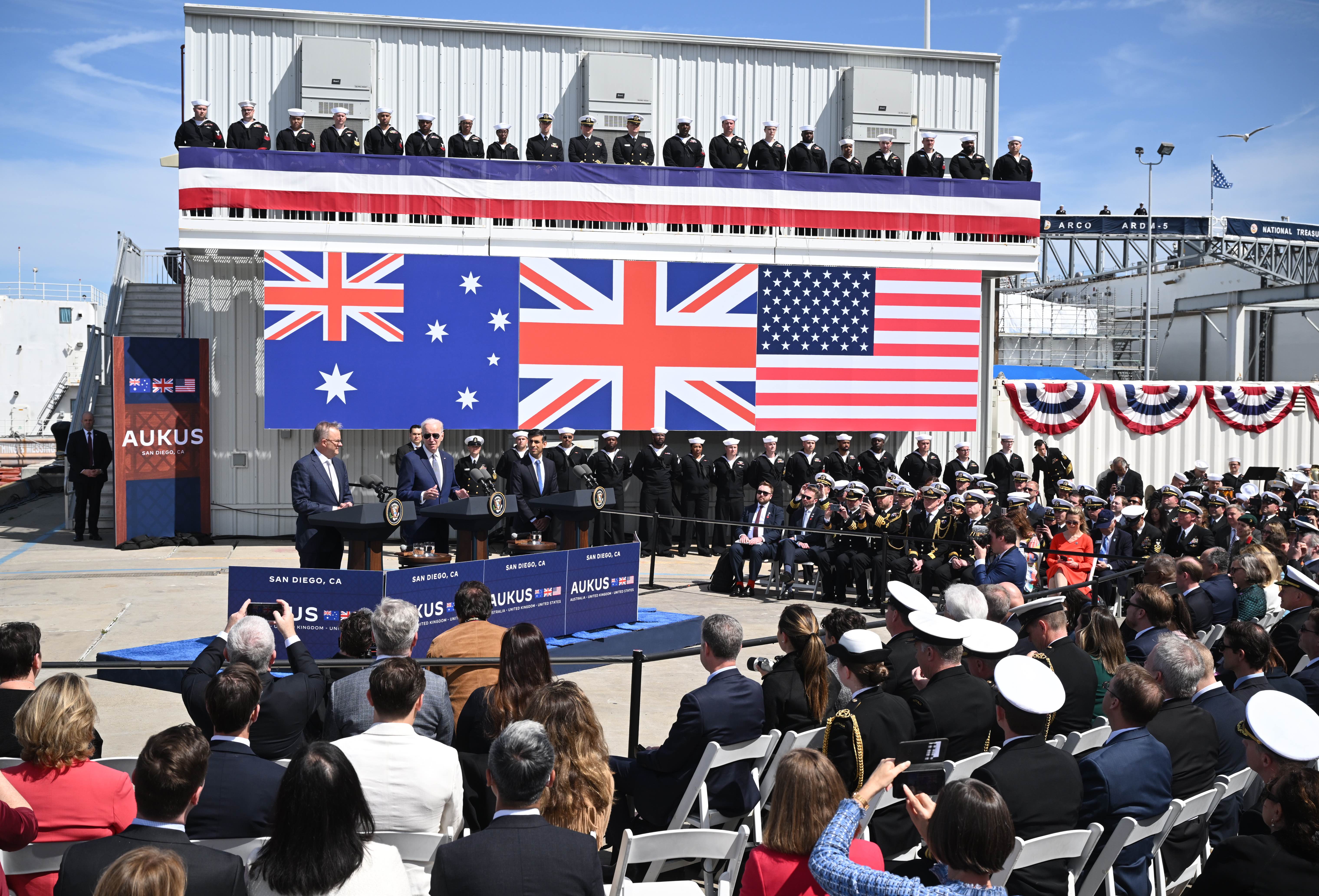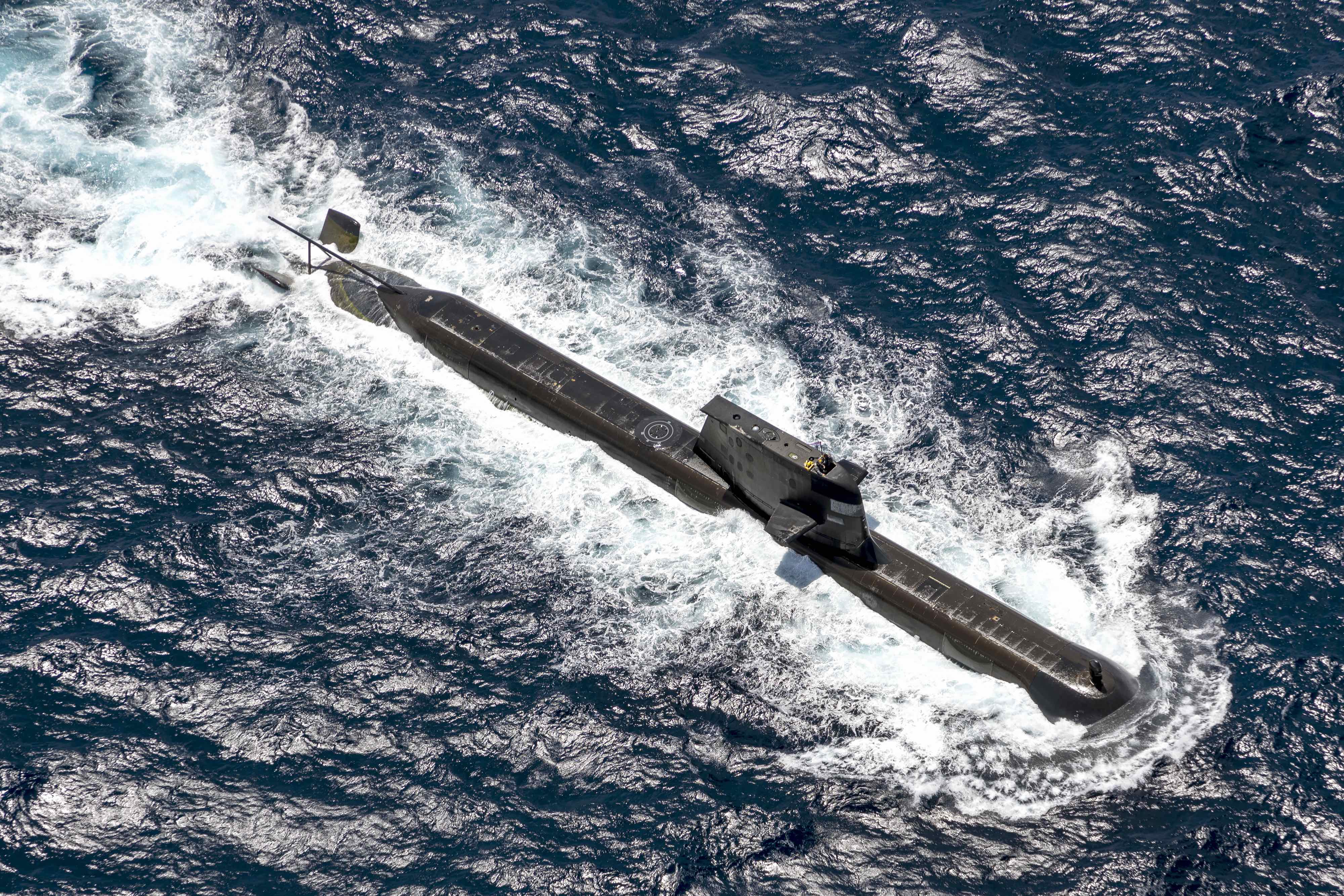
Politics & Society
What you need to know about the status of Taiwan

Can Australia’s Defence Strategic Review build a narrative about our country’s security and defence that the public will get behind?
Published 1 May 2023
One key criticism of last month’s announcement of plans to acquire submarines under the Australia-United Kingdom-United States (AUKUS) partnership is that the case has not been sufficiently made to the Australian public.
Current and former parliamentarians including Gareth Evans and Kim Carr have focused on unanswered questions and the need to explain Australia’s shift in strategic approach.

I’m sure that the Deputy Prime Minister and Minister for Defence Richard Marles thinks this is unfair.
He presented a detailed Parliamentary statement in an attempt to make the case before the announcement and has made extensive media appearances explaining it.
Perhaps the wider problem is that in 2021, AUKUS was sprung on the Australian public fully formed, with the announcement prepared in great secrecy and unveiled with a big splash.

Politics & Society
What you need to know about the status of Taiwan
Former Prime Minister Scott Morrison described it as the most closely guarded secret since World War II and confirmed that he kept the plan even from most of his national security cabinet for nearly a year.
And with the opposition’s quick announcement that it would support AUKUS if elected, the public was essentially presented with a fait accompli.
This approach is pretty much the opposite of preparing the public for a major change in policy.
The question is whether the recent release of the Defence Strategic Review can change this. This release is an unclassified version of the independent review by former chief of defence Sir Angus Houston and former defence minister Stephen Smith (along with the government’s response).

Interestingly, a major theme of the review is the need for “a whole-of-government and whole-of-nation effort”. It says that ensuring Australia’s security is not something Defence can grapple with alone, calling for a “unifying national strategic approach” and “a national strategy and unity of effort to Australian statecraft”.
And it recognises that using all elements of national power and policy alignment require “a consistent strategic narrative”.
This is in line with a recent paper by Asia-Pacific Development, Defence & Diplomacy Dialogue (AP4D) that argues developing a coherent narrative for Australia’s international policy is vital to achieve whole-of-nation buy-in.

Politics & Society
Is Australia doing enough to support the Pacific?
It recommends developing clear, over-arching strategic guidance which outlines Australia’s worldview and global challenges, and which provides guidance for policy and resourcing by setting out high-level objectives and priorities for international policy.
One real-life attempt to do this is the United Kingdom’s Integrated Review of Security, Defence, Development and Foreign Policy in 2021.
It aimed to be “a comprehensive articulation of the UK’s national security and international policy” that described “the government’s vision for the UK’s role in the world over the next decade and the action we will take”.
This Integrated Review set out a vision for post-Brexit “Global Britain” with four over-arching objectives around strengthening security and defence, shaping the open international order, sustaining strategic advantage through science and technology, and building resilience at home and overseas.

The process has survived political turmoil in the UK, with Rishi Sunak’s Government recently releasing a refresh which is as much about recommitting to an integrated framework as it is about sharpening the UK’s objectives in light of the Russian invasion of Ukraine.
While the refresh announces increased defence funding, it makes clear that this alone is not sufficient:
“Beyond our military instruments, an integrated approach to deterrence and defence requires us to bring together the wider levers of state power to increase the costs of aggression by hostile actors above and below the threshold of armed conflict. The UK will continue to develop new levers to adapt to the changing threat environment, and better integrate existing levers for strategic effect.”

Politics & Society
Stepping carefully amid conflict in the Pacific
The language in the Defence Strategic Review suggests that Australia is taking insights from this process.
When done well, documents like this give government a space to set priorities and generate a narrative that tells a compelling story to the wider society.
It can be clear on objectives and potential trade-offs. Importantly it can include cost-benefit and opportunity cost analysis of particular investments versus others.
The purpose is to generate a “whole-of-nation” approach where the Federal Government, state and territory governments, industry and the wider community see themselves as contributing to Australia’s international objectives.

The Defence Strategic Review goes so far as defining “an informed public” as part of national resilience.
To get public buy-in, government needs to project an over-arching vision: a narrative about Australia’s place in the world and what it will do in difficult and contested times. Ideally, this vision would not just focus on defence, but also on other areas of statecraft, like development assistance and diplomacy.
Obviously, this is easier said than done – and may always be an aspiration. But it needs to be attempted if governments want buy-in on big decisions.
One lesson from AUKUS is the need to make a long-term, consistent effort at the political and bureaucratic level to build wide understanding of Australia’s international policy choices.
Banner: Getty Images